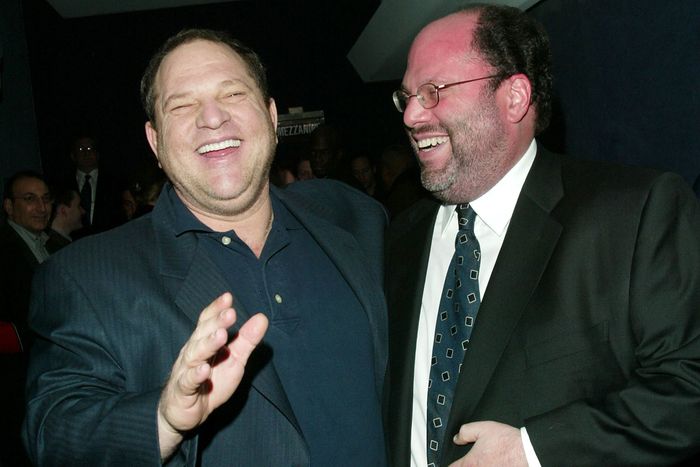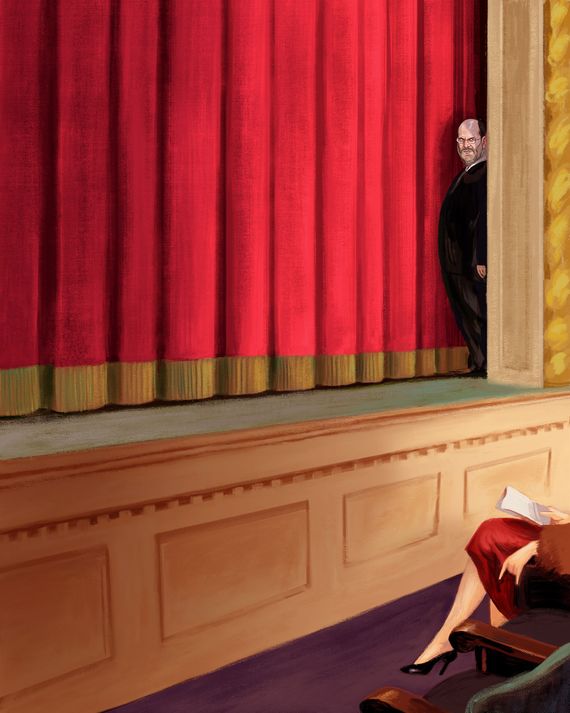
To hear them tell it, the Broadway professionals whose careers Scott Rudin dominated for decades donÔÇÖt sound too torn up about his cancellation. ÔÇ£People are really worried about me,ÔÇØ one longtime Rudin collaborator told me rather breezily this summer. ÔÇ£ÔÇëÔÇÿAre you going to be okay? YouÔÇÖre so closely linked to Scott.ÔÇÖ IÔÇÖm not only going to be okay ÔÇö IÔÇÖm going to be better because I donÔÇÖt have to expend the energy to deal with ScottÔÇÖs personality and quirks and try to manage him.ÔÇØ When I spoke with a prominent Broadway creative figure, someone who has worked with Rudin on multiple shows, he was still offended by a recent Washington Post article suggesting that the Rudin-shaped void in the Theater District would be creatively and financially devastating. ÔÇ£Pardon my French: Go fuck yourself,ÔÇØ he said. ÔÇ£Scott didnÔÇÖt produce Rent or A Chorus Line or Hamilton. The world would survive without him.ÔÇØ
After a Hollywood Reporter expos├® in April ÔÇö and follow-up reports on Vulture and in New York magazine as well as the New York Times ÔÇö documented his savage verbal abuse and intimidation of his assistants, Rudin became an instant pariah. He put out a statement saying he would ÔÇ£step back from active participationÔÇØ in his plays and musicals; his name was yanked from five films in development at the indie studio A24; several huge Broadway shows eliminated him as lead producer. Now, if you know where to look, RudinÔÇÖs absence is conspicuous. HeÔÇÖs a nonentity in rights auctions for hot new novels. When plays return to the stage in earnest ÔÇö with the first preview of Pass Over at the August Wilson Theatre on August 4 ÔÇö every aisle seat will be filled after years of RudinÔÇÖs imperiously demanding house seats and then failing to show up.
Fears of the Delta variant aside, thereÔÇÖs a tang of possibility in the midtown air ÔÇö the sense that without the remorselessly grabby Rudin around, theaters and plays and literary rights and talent are suddenly freed. For the first time in forever, stages long monopolized by Rudin are booked with shows from other impresarios. ThereÔÇÖs Freestyle Love Supreme, Lin-Manuel MirandaÔÇÖs rap musical, at the Booth, a crown-jewel venue Rudin would likely have locked up. And Thoughts of a Colored Man, a new play by Keenan Scott II, at the Golden, another of RudinÔÇÖs favored houses. ÔÇ£ItÔÇÖs just nonsense, absolute nonsense, to think ScottÔÇÖs ÔÇö or any producerÔÇÖs ÔÇö departure would have immense consequences on the industry as a whole or the amount of visionary work thatÔÇÖs being done,ÔÇØ says Vivek Tiwary, the producer of the hit musicals American Idiot and Jagged Little Pill. If anything, he adds, the departure of someone like Rudin will only clear the way for ÔÇ£an incredible amount of visionary work coming down the pike.ÔÇØ
And yet some of these arguments sound incomplete. ItÔÇÖs hard not to notice that four of the seasonÔÇÖs biggest tentpoles ÔÇö two plays and two musicals everyone is counting on to revive the $1 billion industry ÔÇö trace no small part of their creative DNA to Rudin. In hindsight, ÔÇ£step back from active participationÔÇØ is endlessly interpretable. He retains a financial stake in some of his Broadway productions. A longtime collaborator with firsthand knowledge of a recent incident questions how out of the picture he really is: ÔÇ£I know of at least one person Scott unloaded on, in typical Scott fashion, about one of his upcoming shows.ÔÇØ Even Theater District power-lunchers are skittish about referring to Rudin in the past tense, knowing that everything gets back to him.
A phantom Rudin looms in countless ways. Ambitious young playwrights have to wonder who will pay as much as Rudin would for their work, or be able to put it on Broadway with the same flair, or help them cross into commercial screenwriting. Surely, at least a few of RudinÔÇÖs stable of preferred actors ÔÇö used to above-market fees for career-making roles ÔÇö canÔÇÖt shake the worry that the same chances wonÔÇÖt present themselves. Ad reps for the Times are particularly nervous: Rudin was the king of the gratuitous full-color double truck, placing spread after spread to herald his megahits and esoteric shows alike. How are they going to make their numbers? ÔÇ£ThereÔÇÖs this glib assumption,ÔÇØ says the Pulitzer-winning playwright John Patrick Shanley, whose Doubt Rudin adapted for the screen, ÔÇ£that anyone is replaceable. I donÔÇÖt see it. I donÔÇÖt see another Scott out there.ÔÇØ
Rudin himself has been waiting all this out mostly at his hedge-ringed home in East Hampton, employing a single, presumably quite brave assistant. A lot of people in Hollywood, and some on Broadway, think his return is inevitable. They could base the argument purely on his relentless nature and the fact that he has been obsessively stalking Broadway since high school, but an even clearer tell can be found in the carefully hedged statements put out by the headliners of his upcoming shows. Hugh Jackman and Sutton Foster, the stars of The Music Man, the yearÔÇÖs hottest ticket, took their time reacting publicly to the Rudin bombshells. Aaron Sorkin, whose To Kill a Mockingbird could again be a money-printer, has been silent, aside from a letter to the showÔÇÖs company announcing RudinÔÇÖs resignation as producer. Bob Wankel, head of the Shubert Organization, BroadwayÔÇÖs biggest theater owner, hasnÔÇÖt made a statement at all.
Since BroadwayÔÇÖs economics are fragile in the best of times, the odds are even dimmer that, in the long tail of a pandemic, the industryÔÇÖs most reliable purveyor of Event Theater will be canceled forever. Two important people in RudinÔÇÖs corner are his moneymen, Barry Diller and David Geffen, both of whom think if he is serious about changing, he should be readmitted to society. Geffen told me, ÔÇ£Look, if he were an alcoholic or a drug addict, weÔÇÖd say, ÔÇÿHe should be going to rehab, and when he gets his act together, heÔÇÖll go back to what he was doing.ÔÇÖ IÔÇÖm not sure why this should be different. People need to be able to get better and do better and get back to their lives. ThereÔÇÖs no religion that doesnÔÇÖt have forgiveness.ÔÇØ
For Rudin, any absolution may have less to do with his own reforms ÔÇö real or merely performed ÔÇö than with a recognition among writers, directors, actors, and investors that his sins often redounded to their benefit. Whether Rudin regains his position in film and theater or not, this period of exile has forced a lot of his peers and colleagues in the business of high-middlebrow culture to contemplate how he was able to succeed so consistently and for so long, how complicit they were in his reign ÔÇö and whether they should ever welcome him back.
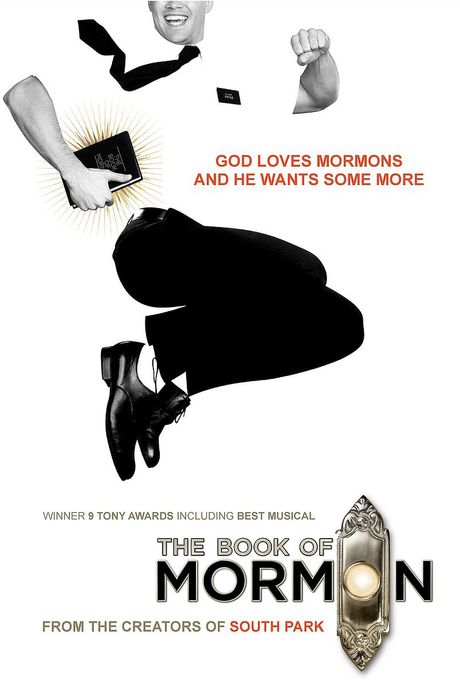
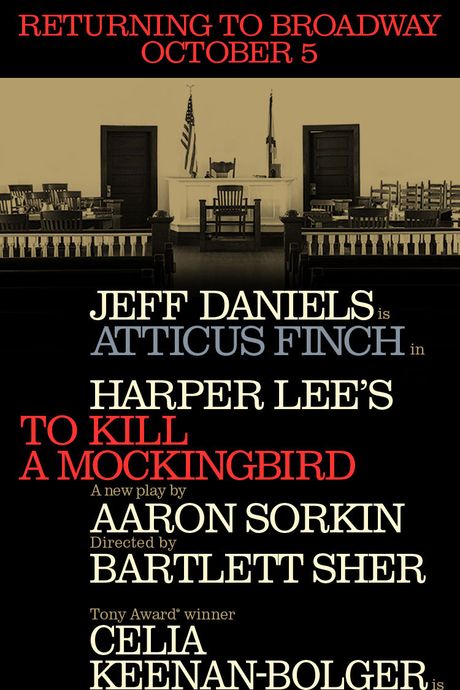
Someone had to be Scott RudinÔÇÖs first assistant. His name was Joseph, and the two grew up together in the small town of Baldwin on Long IslandÔÇÖs South Shore. Even then, Rudin stood out for his precocious obsession with theater, regularly taking the train into the city to see shows and memorizing Playbills. ÔÇ£When he was 15, he was going on 35,ÔÇØ says Joseph, who asked to be identified by his middle name. ÔÇ£Even our English teacher, who had been a Broadway dancer and actor, would talk to Scott like they were peers.ÔÇØ At Baldwin Senior High, Rudin directed a production of A Funny Thing Happened on the Way to the Forum and pestered his way into jobs assisting Broadway titans such as Robert Whitehead and Kermit Bloomgarden, whose prosthetic leg Rudin once carried on a bus to Harlem to have repaired.
Rudin graduated early, at 16, and showed up at the new offices of Johnson-Liff Associates, a casting agency. An administrative employeeÔÇÖs son recalls, ÔÇ£My mother was setting up phones, and Scott came in multiple times. She was like, ÔÇÿThereÔÇÖs no one here; IÔÇÖm unimportant.ÔÇÖ HeÔÇÖd say, ÔÇÿTake my r├®sum├®.ÔÇÖ ÔÇØ He got a job there. Casting would both reward and encourage a lack of mercy. Shanley recalls Rudin talking about how at Annie there was a height mark on the wall backstage; whenever the little girl in the title role crossed it, she would be told, ÔÇ£WeÔÇÖre going to replace you.ÔÇØ
In 1977, Joseph agreed to be RudinÔÇÖs assistant for a few weeks, working out of RudinÔÇÖs Manhattan apartment. Late one August day, hearing Rudin at the door, Joseph rushed to turn off the television. Rudin beelined over and felt the back of it. ÔÇ£You were watching TV,ÔÇØ he said. Joseph noted that it was after five; the workday was over. ÔÇ£I would say youÔÇÖve been watching for three hours,ÔÇØ Rudin said. Joseph protested ÔÇö Elvis Presley had died, he was watching the news ÔÇö but Rudin kept yelling and became enraged when Joseph started laughing. ÔÇ£ThatÔÇÖs when I knew he had a temper,ÔÇØ Joseph says.
Joseph saw more evidence of it two years later when he joined Rudin on a visit to his parents. As Joseph remembers it, they were in RudinÔÇÖs childhood bedroom when Rudin asked his father what he thought of a new movie he had cast. ÔÇ£His father said, ÔÇÿItÔÇÖs a piece of garbage,ÔÇÖÔÇëÔÇØ Joseph recalls. ÔÇ£Scott said, ÔÇÿThatÔÇÖs how you talk to your son?! You could have bullshitted and said you liked it! Get the fuck out of my room!ÔÇÖÔÇëÔÇØ Rudin says the incident never happened.
Long before he became notorious for throwing objects ÔÇö a litany that includes scripts, BlackBerrys, cell phones, car phones, desk phones, pens, pencils, cups of coffee, TV remotes, Baccarat crystal, staplers, books, chairs, paper clips, dishware, baked potatoes, chicken salad, and a MacBook ÔÇö Rudin was himself the target of a workplace missile.
At 21, he moved to Los Angeles to make movies for Edgar Scherick, a producer given to yelling at employees until they cried. Once, he threw a glass of tomato juice at Rudin, hitting the wall behind him. ÔÇ£I said, ÔÇÿWow, now we have a wall of blood,ÔÇÖÔÇëÔÇØ recalls Donna Smith, who was present (and who later became president of production at Universal Pictures). ÔÇ£Scott said, ÔÇÿYouÔÇÖre crazy. YouÔÇÖre out of your mind.ÔÇÖÔÇëÔÇØ
ÔÇ£I think EdgarÔÇÖs behavior gave Scott permission to do it,ÔÇØ says another member of the staff, Chellie Campbell, of RudinÔÇÖs drift toward becoming an office nightmare. The watercooler psychoanalysis back then, Smith adds, was that Rudin figured it was his turn to become a bully after suffering his own share of abuse. (Rudin has told people that Brad Grey, whom heÔÇÖd grown up with in Baldwin and who would later become head of Paramount, stole his bike when they were kids.) Rudin, who was living in an apartment off La Cienega Boulevard, was ÔÇ£very overweight at the time,ÔÇØ Smith remembers, and ÔÇ£a very unhappy guy.ÔÇØ She fondly recalls eating dinner with him 126 times on location in Weirton, West Virginia, to film Reckless, making sure the Holiday Inn where they were staying made him only fish, salad, and other healthy food.
A few years later, another famously volcanic producer, Larry Gordon, poached Rudin after hearing a director praise his tenacity. Gordon remembers Rudin as an unsleeping, information-hoovering ÔÇ£whirlwindÔÇØ ÔÇö sometimes having two breakfast meetings a morning (heÔÇÖd later move to three), a lunch meeting, two dinners, and drinks. ÔÇ£You couldnÔÇÖt have had a better piece of man power at the time,ÔÇØ Gordon says. When Fox hired Gordon in 1984, he brought Rudin with him; eventually, under Barry Diller, Rudin became FoxÔÇÖs president of production. He was 27, the youngest person in that position at any of the eight major studios, leading to comparisons to Irving Thalberg and a Los Angeles Times article headlined ÔÇ£Baby Mogul.ÔÇØ Rudin had a brief but impressive run, working on Wall Street, Big, Broadcast News, Aliens, Raising Arizona, and Working Girl.
At Fox, for the first time in his career, Rudin occupied a position of genuine power, and he seemed to come into his own as a horrible boss ÔÇö bluntly insulting his assistants, firing and un-firing them repeatedly, deploying gifts and crumbs of praise when it served him. He was on a strict diet and working out with a trainer, and an assistant who was being emotionally ÔÇ£beaten upÔÇØ by Rudin suggests a confluence of causes: ÔÇ£Having to be in the closet doesnÔÇÖt help. Not getting extra calories and comfort food doesnÔÇÖt help. Working for Diller doesnÔÇÖt help. Proving yourself doesnÔÇÖt help.ÔÇØ
Rudin disliked Los Angeles and returned to New York to see plays whenever he could, borrowing the corporate jet to catch two shows each on Friday, Saturday, and Sunday before boarding the plane and being back in his L.A. office Monday morning. ÔÇ£His No. 1 love was always the theater, no secret about that,ÔÇØ Gordon says. ÔÇ£That was his ultimate goal.ÔÇØ
After Fox fired Rudin ÔÇö Diller recalls it had to do with issues of ÔÇ£maturityÔÇØ ÔÇö he got a lavish first-look deal at Columbia Pictures. The source of much of his power then, and ever since, was his ruthless drive to corner the market for adaptable literary material. Rudin was one of the first film producers to have his own scout in New York whose job was to nose out hot new literary properties, and he became known for making big preemptive offers for books that would go on to become critical or commercial hits. ÔÇ£He was an IP-driven producer before IP was the thing this entire industry was chasing,ÔÇØ as a former Rudin executive puts it. One of the easiest ways to incur his wrath if you worked for him was to fail to obtain a manuscript or spec script before everyone else.
RudinÔÇÖs unstoppable rise seemed to escalate his rages. ÔÇ£He was ultra physically violent in all kinds of ways,ÔÇØ says an executive who worked for him during this period. Once, when an assistant was driving Rudin somewhere, a flung car-phone handset hit the assistant and broke the windshield. ÔÇ£When I say violent,ÔÇØ says an assistant from the ÔÇÖ90s, ÔÇ£I mean, most people have never been yelled at like this in their entire life. Super-explosive, hands shaking, face shaking, bright red, screaming at the top of his lungs, inches from you, saying, ÔÇÿI want to rip your fucking head out! I want you to jump out a window and kill yourself! I want to murder you!ÔÇÖ And then, if youÔÇÖre trying to set the record straight or defend something and it reads to him like youÔÇÖre not hearing or accepting it, heÔÇÖd do something explosively violent ÔÇö flip a desk, throw a fax machine, break a phone in half. ItÔÇÖs like having a debate with a wolf or a bear.ÔÇØ
Inevitably, people who worked with Rudin wondered how he had gotten that way. A 1993 profile in the Times, in which Rudin said he had ÔÇ£never been nurtured,ÔÇØ described him as being estranged from his parents. He told the writer he hadnÔÇÖt been home to Baldwin in ten years and had seen his mother and father only twice during that time. He wasnÔÇÖt sure where his father currently worked. ÔÇ£If youÔÇÖd ask him about his parents,ÔÇØ an assistant from that era says, ÔÇ£heÔÇÖd say, ÔÇÿI donÔÇÖt have any fucking parents, fuck you.ÔÇÖÔÇëÔÇØ (Rudin now says, ÔÇ£This was an unhappy period for all of us, and we made a concerted effort to improve it, which we did. My parents, brother, and I have had a close and meaningful relationship for years and years, something that was hugely important to me before my father passed away and remains so to this day.ÔÇØ)
Ultimately, it was RudinÔÇÖs aggression with IP, rather than toward his employees, that would lead to his ouster from Columbia. After Dawn Steel, the studioÔÇÖs president, felt he had gone behind her back over a sought-after spec script, she killed his overall deal. But as would often happen with Rudin, things that might have reflected poorly on others only burnished his rep. Doing the dirty on Columbia sent a perversely appealing message to agents and writers that he was someone who would do (and pay) anything for material he wanted. If you were a filmmaker with an ego, there was a way to squint at his violent outbursts and see someone who wouldnÔÇÖt tolerate anything but the best.
Rudin didnÔÇÖt seem to see what the problem was. ÔÇ£He said it himself,ÔÇØ recalls Robert Fox, who would later co-produce several films and plays with Rudin. ÔÇ£ÔÇëÔÇÿWhen people come to work for me, they know what to expect.ÔÇÖ I honestly donÔÇÖt think he thought it was a terrible thing. It was part of his modus operandi.ÔÇØ
In a series of emails to New York Magazine, Rudin was contrite about his temper but unyielding about his approach to work. ÔÇ£I have never physically assaulted or threatened to physically assault anyone,ÔÇØ he wrote. ÔÇ£Anger and frustration is being conflated with violence. I have made no secret ÔÇö and have admitted ÔÇö that I have a temper and yelled at assistants. This has been true for many years, and is behavior I am not proud of and for which I am sorry.ÔÇØ
He singled out one assertion ÔÇö that he had once said to someone, ÔÇ£YouÔÇÖre a function; why would you think youÔÇÖre anything more than a function?ÔÇØ ÔÇö for a long response: ÔÇ£I do think when youÔÇÖre making what is intended to be a work of art, then yes ÔÇö everybody is in fact a function. I include myself in this perhaps more strongly even than I would the rest of the team. If I was making a play with Mike Nichols, I was a function of what he needed ÔÇö no more, no less ÔǪ Generally, good work has one author, one true originator, and the rest of us are functions of what that person wants and needs in order to be great and to make great art. The touchy-feely part of making work ÔÇö the ÔÇÿThis is a democracy, and every voice is vitalÔÇÖ ÔÇö runs counter to making it good.ÔÇØ
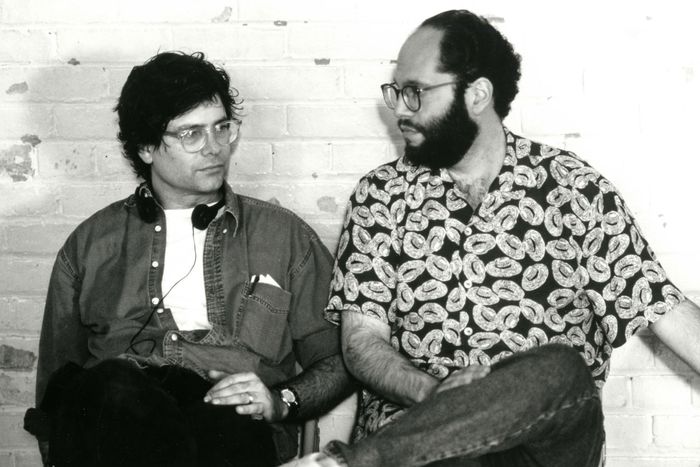
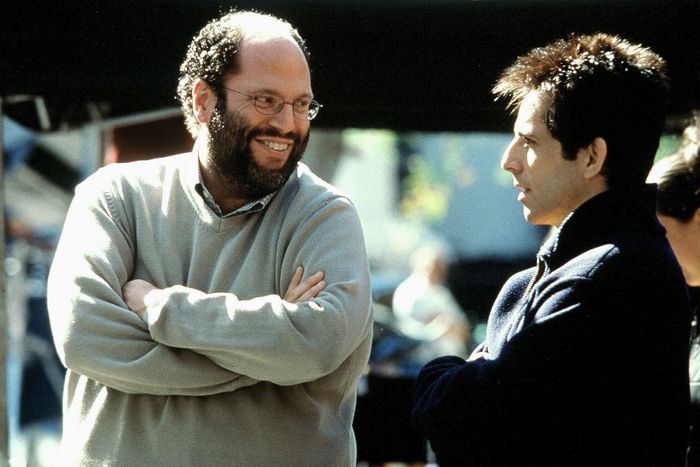
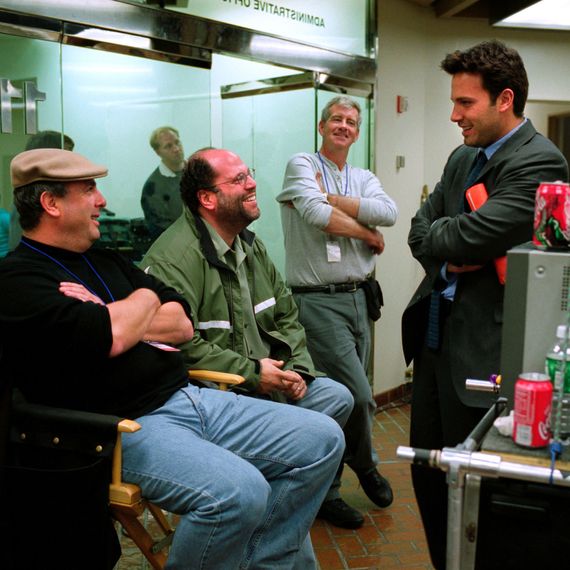
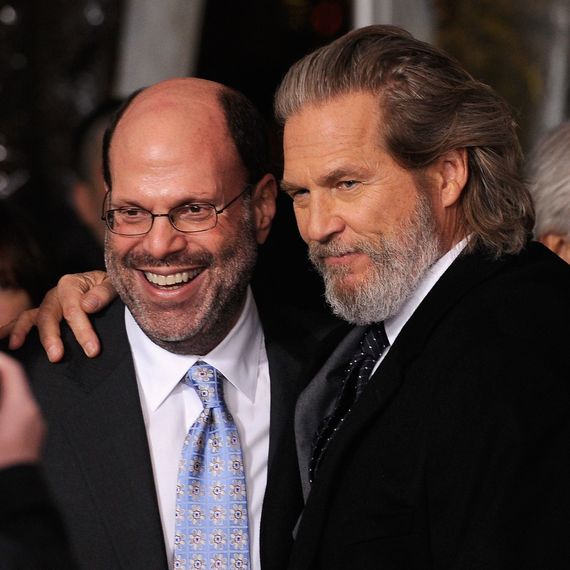
RudinÔÇÖs appeal to creative people was complex. He had a literary credibility that, say, Jerry Bruckheimer did not, and he almost invariably had the best material to offer. He won the rights to iconic books ÔÇö The Firm, when it was still in manuscript; AngelaÔÇÖs Ashes; Underworld. He had a gift for imagining new professional roles for people: He gave Jodie Foster and Barry Sonnenfeld their first jobs as directors. And he could be loyal to talent, so much so that one actress referred to his collection of regulars as the Scott Rudin Players.
At the same time, his personal behavior ÔÇ£wasnÔÇÖt even an open secret,ÔÇØ as one ex-assistant says. ÔÇ£It was an open non-secret.ÔÇØ Spy magazine called him ÔÇ£the Biggest Asshole in HollywoodÔÇØ (which was also a dig at his size), and RudinÔÇÖs viciousness began to filter into writersÔÇÖ work. Swimming With Sharks, a 1994 film in which an abusive producer gets tortured, was largely modeled on Rudin, based on what the screenwriter had heard from his peers in the industry. But as far as investors and studio chiefs were concerned, Rudin was an extraordinary performer. Landing at Paramount, he produced a remarkable range of iconic movies, including Clueless, The First Wives Club, The Truman Show, South Park: Bigger, Longer & Uncut, and School of Rock. Unlike other star producers, who pushed for perks like limos and private jets, when Rudin fought with the studio, it was as an advocate for his projects ÔÇö more money for the cast or an extra day of shooting. The collateral damage was compartmentalized as the cost of doing business.
During his deal with Paramount, Rudin moved back to New York to be closer to the industry dearest to his heart. He started dating John Barlow, a theatrical publicist he would eventually marry. While remaining a force in Hollywood, he would also become, in earnest, what he had always wanted to be: a major Broadway producer.
Visitors to RudinÔÇÖs West 45th Street office were often surprised ÔÇö it was convenient for walking to theaters but otherwise unimpressive, with a small, uncomfortable reception area. The bulk of the miserable staff worked in a bullpen; executives had ÔÇ£these caves of despair and solitude,ÔÇØ as one described them. Assistants kept on hand framed backups for the movie and Broadway posters on the walls, so when Rudin broke one, it could be replaced right away.
In New York, Rudin tended to have four assistants at a time and would sometimes make use of a fifth. He occasionally paid as much as $100,000 a year and expected them to work crazy hours. It was hard for young New Yorkers with film-business ambitions to avoid him: Other than Harvey Weinstein, he was the only big-name producer in town. Perhaps for this reason, his nonstop conflict with workers seemed to take on greater intensity. He could be triggered by an assistant toasting his bagel to an insufficient shade of black, mispronouncing a name, using one space instead of two after a period. He said things with an almost cultivated theatricality, as if he were punching up his own dialogue as he delivered it:
ÔÇ£If you ever lie to me again, not only will you never work on another movie again, you will never watch a movie again.ÔÇØ
ÔÇ£If you touch another phone in my office, I will have the police throw you out of my building. I will personally take a car from Queens back to the office and pull your head off your shoulders.ÔÇØ
ÔÇ£Fuck you where you breathe.ÔÇØ
Some of RudinÔÇÖs victims held to a flinty calculus: If you could last six months in his office, you had a future in the industry. (Kevin Walsh, who would later produce Manchester by the Sea, mounted on his wall five StarTAC phones Rudin destroyed when Walsh worked for him.) But most simply suffered. By instinct or design, Rudin was an almost clinical practitioner of intermittent reinforcement. Every now and then, someone lasted through the hazing and got promoted, leading others to nurse false hopes of advancement. Sometimes he would surprise employees with extravagant gifts, like a thousand-dollar sweater from Barneys or paying off a huge medical bill. When a former assistant named Sam Cassel died in a car crash in L.A., Rudin flew a bunch of former employees across the country for the funeral in Philadelphia and put them up at the Ritz-Carlton. ÔÇ£Yeah, there were these glimpses of humanity,ÔÇØ an assistant from that era says, ÔÇ£but in a world of abuse, thatÔÇÖs as damaging as the abuse.ÔÇØ People who worked for Rudin got ulcers, cried, had panic attacks, saw their hair fall out, popped Xanax and Valium and antidepressants, gained weight, lost weight, and had nightmares for years. Kevin Graham-Caso, who was fired multiple times, kicked out of RudinÔÇÖs car, and had to duck out of the way of a thrown stapler, later died by suicide; his twin brother, David, believes his time with Rudin was one of the causes. (Rudin disputes this account.)
Rudin liked to have an audience for his cruelties, and his aggression was hardly confined to underlings. He would write demeaning emails to colleagues at other companies and bcc dozens of others. On the set of The Stepford Wives, an assistant recalls, Rudin was on the phone with Sherry Lansing, the powerful chief of Paramount. He muted her to say, ÔÇ£I need a pen, tape, and paper.ÔÇØ Once he had them, Rudin ÔÇö as he continued to carry on his conversation with Lansing ÔÇö arranged four pieces of paper into a larger rectangle, taped them together, scrawled something, and held up the poster for the room to read: SHERRY LANSING IS A CUNT. In 2005, The Wall Street Journal published an article about his behavior headlined BOSS-ZILLA! ÔÇ£Scott produced that article,ÔÇØ an assistant says. ÔÇ£He was proud of it. Scott told a bunch of ex-assistants, ÔÇÿHey, the journalist tried to call you, youÔÇÖre ducking their call ÔÇö fuck you.ÔÇÖ ÔÇØ (Rudin denies this.)
Creative elites seemed not to care about this behavior. Besides bringing great material to writers, directors, and actors, Rudin and his staff were regarded as giving exceptionally good notes on scripts. ÔÇ£You compare those notes to the ones you generally get,ÔÇØ one of his former executives says, ÔÇ£and itÔÇÖs like comparing a postgrad dissertation with someoneÔÇÖs spelling homework from third grade.ÔÇØ Top novelists found Rudin stimulating. On working with him, Michael Chabon says, ÔÇ£I began to learn how to write a screenplay. He has very good instincts about storytelling.ÔÇØ A producer says, ÔÇ£This is a guy who, when Aaron Sorkin writes him a script, Sorkin comes to his office, and they turn pages. ThatÔÇÖs a couple days: ÔÇÿLetÔÇÖs go line by line.ÔÇÖ ThatÔÇÖs not something most people can do with an Aaron Sorkin, but Rudin could.ÔÇØ
Writers and directors liked him because he might be a bully, but he was their bully, willing to battle the suits for his artists. ÔÇ£I think his core competency is competency,ÔÇØ says a writer who collaborated with Rudin. ÔÇ£ItÔÇÖs weird to say that, but there are a lot of producers credited as producers who donÔÇÖt produce a thing.ÔÇØ Artists like Joel and Ethan Coen, who were more interested in making their films than promoting them, could trust Rudin to market them effectively. ÔÇ£HeÔÇÖs genuinely excited by talent,ÔÇØ the collaborator says. ÔÇ£He likes writers, which a lot of people donÔÇÖt. The problem is, if Scott likes you or is interested in you, he wants to own you. And very quickly, if it becomes a contest between him liking you and him owning you, him owning you will always win.ÔÇØ Rudin says by email, ÔÇ£IÔÇÖm possessive of everything I think is good.ÔÇØ
In New York, Rudin gravitated toward more literary projects, putting him in direct competition with the other silverback in local producing: Harvey Weinstein. Rudin was considered smoother, smarter, and more knowledgeable than Weinstein, who was an instinctual animal. As someone who has dealt with both men puts it, ÔÇ£Scott reads books. I donÔÇÖt think Harvey owns one.ÔÇØ
Their occasional joint ventures were inevitably explosive, as with a 2002 adaptation of Michael CunninghamÔÇÖs novel The Hours. In one sense, it was Rudin at his best, seeing cinematic potential in an unlikely book about three women who deal with suicide and moving heaven and earth to make it happen. But Weinstein was the foreign distributor, and he and Rudin fought over everything from Nicole KidmanÔÇÖs prosthetic nose to the Philip Glass score to WeinsteinÔÇÖs decision not to screen the movie at the Venice Film Festival. Rudin sent a six-foot box of cigarettes to Weinstein, who had quit smoking.
Ultimately, RudinÔÇÖs risky project paid off: The Hours won rave reviews and was nominated for seven Golden Globes and nine Oscars. It was the first time one of RudinÔÇÖs movies was up for Best Picture, and he fought bitterly with Paramount over awards-season strategy. ÔÇ£We probably spent five times as much money to please him,ÔÇØ a former Paramount executive says, but Rudin was insatiable and became abusive with studio executives. Then he went to the press, venting to Esquire about how working with Paramount on Lemony Snicket had been a ÔÇ£circle jerkÔÇØ and a ÔÇ£relentlessly depressingÔÇØ experience. ÔÇ£And then, after all this, Scott didnÔÇÖt come to the Academy Awards,ÔÇØ the Paramount executive recalls. ÔÇ£He couldnÔÇÖt bear to sit in the audience and lose.ÔÇØ RudinÔÇÖs glee at humiliating others, it appeared, was married to a phobia of being humiliated. (Some speculated that he was afraid of losing, in particular, to Weinstein, who had also distributed Chicago, the film that ended up winning.)
After The Hours, anyone in the publishing world with a challenging book would give it to Rudin. More and more, heÔÇÖd work with auteurs like Paul Thomas Anderson, Wes Anderson, the Coen brothers, and Noah Baum-bach. RudinÔÇÖs expanding involvement with theater, and his rivalry with Weinstein, seemed to reinforce his highbrow inclinations, and increasingly he wanted to make movies with budgets unjustified by the breadth of their audience appeal. Paramount let RudinÔÇÖs deal expire in 2005. Moving to Disney, which now owned Miramax, he maintained a near monopoly on breakout literary novels: Benjamin KunkelÔÇÖs Indecision, Jonathan FranzenÔÇÖs The Corrections, Garth Risk HallbergÔÇÖs City on Fire, Chad HarbachÔÇÖs The Art of Fielding, Marisha PesslÔÇÖs Special Topics in Calamity Physics, Emma ClineÔÇÖs The Girls, Rachel KushnerÔÇÖs The Flamethrowers. Even if few adaptations advanced to theaters, his grip on IP made Rudin indispensable. An ex-executive recalls, ÔÇ£In one of his more affable moods, where he was willing to pull back the curtains, he said, ÔÇÿThe reason I have a relationship with the Coens is I had the rights to No Country for Old Men and they wanted to do it.ÔÇÖÔÇëÔÇØ
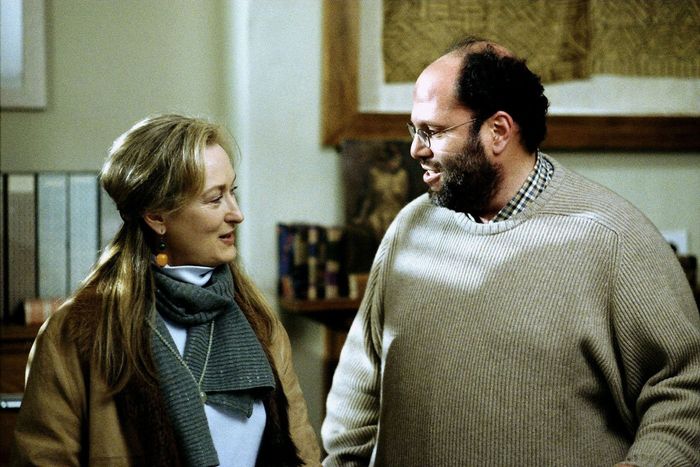
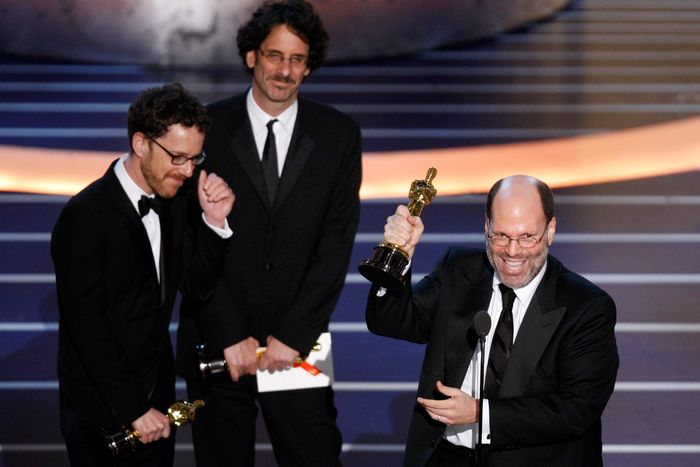
No Country won the Oscar for Best Picture in 2008, and for the next five years, Rudin was at his peak. He won a Tony for The Book of Mormon, which has since grossed more than $650 million, and he found a studio home at Sony, where he oversaw his last stretch of smart commercial films. A former Rudin executive says, ÔÇ£The idea of getting The Social Network made, or Moneyball with Major League Baseball participating ÔÇö do you know how hard that is to do? The degree of difficulty on the producing side is so high. Those movies just wouldnÔÇÖt have been able to be made without someone like him. These are things people donÔÇÖt understand.ÔÇØ
But Rudin was making some of his best movies just as the market for them ÔÇö that is, critically acclaimed mid-budget stand-alone dramas ÔÇö was drying up. With creative energy and resources shifting to superhero movies and prestige TV, he signed a first-look deal at HBO. There things went as they always did with Rudin: well, and then not well. He discovered HBO was a different sort of corporate beast from the Hollywood studios. His constant berating of employees didnÔÇÖt play the same in someone elseÔÇÖs glossy skyscraper as it had in his modest space on 45th Street, and somehow, Rudin failed to recognize that, in TV, power lies not with producers but with showrunners and platforms. ÔÇ£HeÔÇÖs so used to feeling heÔÇÖs smarter than everyone,ÔÇØ an HBO executive says, ÔÇ£and HBO is full of smart people.ÔÇØ
RudinÔÇÖs biggest bet was an adaptation of The Corrections, but the pilot didnÔÇÖt ÔÇ£end in a way that made you compelled to see the next episode,ÔÇØ according to one executive, and the show wasnÔÇÖt green-lit. After Rudin screamed at a programming executive, driving her to tears, and emailed another executive saying, ÔÇ£You fucking piece of shit, you live in dreamland, let me tell you how you fucked me,ÔÇØ HBOÔÇÖs business-affairs office eventually called RudinÔÇÖs lawyer to say the network was terminating his deal. (Rudin says he asked to be let out of it.)
For his part, Rudin remained either oblivious or indifferent to his own motivations. ÔÇ£I was once a fairly angry person,ÔÇØ he told The Hollywood Reporter around that time. ÔÇ£I donÔÇÖt think I am now.ÔÇØ
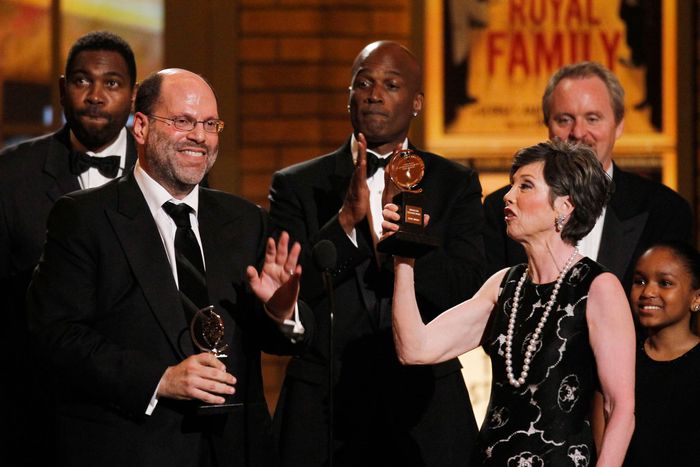
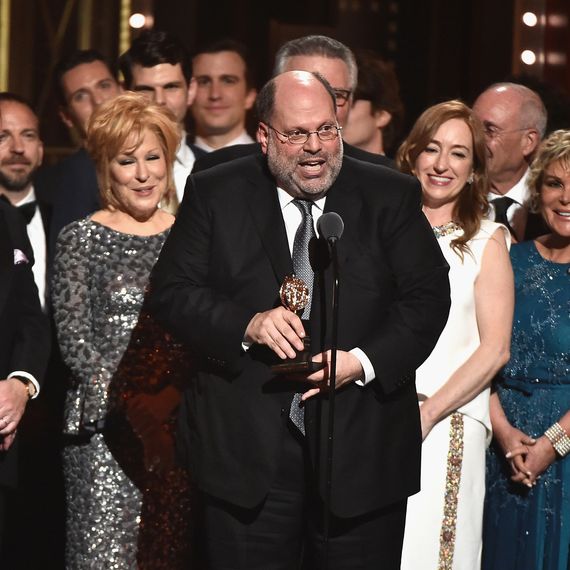
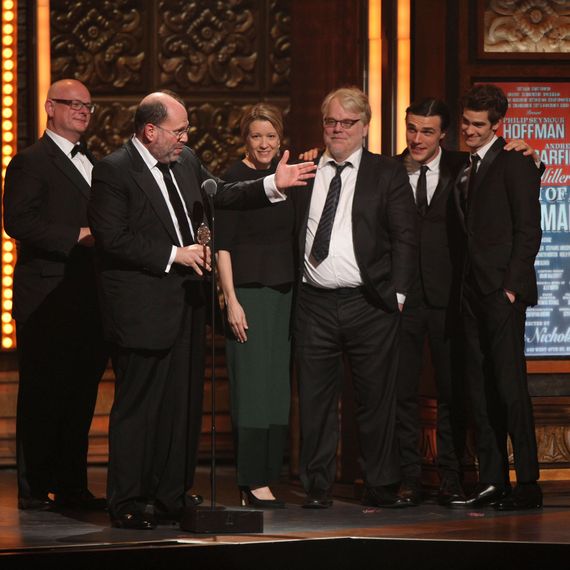
Rudin had a saying ÔÇö ÔÇ£I make movies to support my theater habitÔÇØ ÔÇö and his natural drift toward Broadway was only hastened by the shifts in the movie business. Over the past decade, he became the most prolific producer on Broadway, satisfying a particular taste shared by people who get the Sunday Times at home. Rudin was able to deliver star power ÔÇö persuading talent like Bette Midler and Denzel Washington to perform eight shows a week for significantly long runs ÔÇö and to do so at an intellectual level. ÔÇ£It was always higher up the brain stem than ÔÇÿThe RoundaboutÔÇÖs going to do Bye Bye Birdie with John Stamos.ÔÇÖ That was obviously for the proles,ÔÇØ says a former theater critic. ÔÇ£Rudin was for the next tier up ÔÇö the Upper East Side theatergoer who wants to feel smart. He was smart about how to burnish something.ÔÇØ
Rudin would produce four or five shows year after year with startling variety: inspired revivals and originals, both plays and musicals. Broadway aficionados appreciated that, as one puts it, Rudin was ÔÇ£the only one whoÔÇÖs going to do an interesting revival of Three Tall Women, Shuffle Along, or Waverly Gallery.ÔÇØ When it came to experimental new work, a Rudin investor says, ÔÇ£DollÔÇÖs House 2 should be on Broadway, but today it would never be produced by anyone but Scott, and I love him for that.ÔÇØ Adds a writer whose work has been produced by Rudin, ÔÇ£For many years, basically the only way a nonmusical play got to Broadway was either it was affiliated with a major nonprofit like Roundabout or Lincoln Center or the Public Theater ÔÇö or Scott produced it.ÔÇØ
Rudin was in some ways a throwback, resurrecting the razzle-dazzle showmanship of one of his heroes, the legendary Broadway producer David Merrick. He closely oversaw the design of print ads and shock-and-awed Broadway with their number, size, and placement. When Hello, Dolly! was an impossible ticket, he included postcards in Playbill so the lucky few could send mail-brags to their FOMO-stricken friends. He required that the Playbill covers for certain of his shows be black-and-white with sans-serif typefaces, like the ones he had grown up with, and forbade ice cubes in concession drinks lest their rattling disrupt the experience.
For serious theater pros, Rudin, with his ability to speak fluently about, say, Ferenc Moln├ír, was seductive. ÔÇ£If you look at Playbill, you see three dozen quote-unquote producers on any new musical,ÔÇØ says a professional who has worked with Rudin. ÔÇ£The people running that industry are mainly dilettantes at this point. So if youÔÇÖre smart professionally, youÔÇÖre taking orders from people you feel smarter than 99 percent of the time. Having a producer whoÔÇÖs the smartest person in the room is a much more exciting way to do your job.ÔÇØ
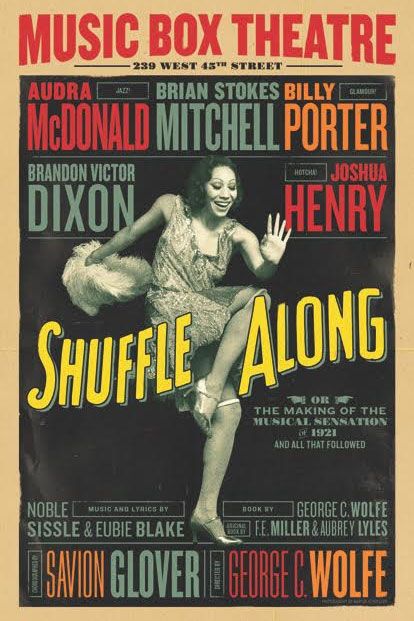
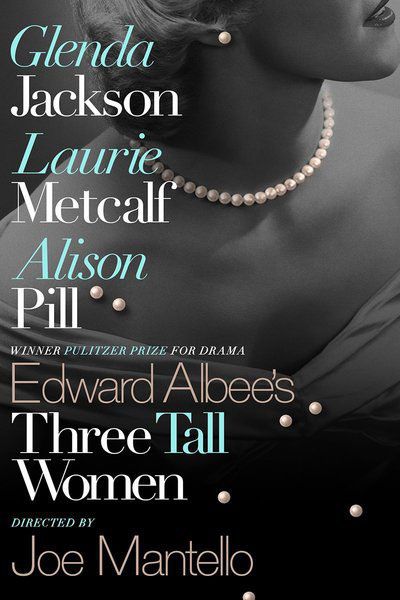
For a time, RudinÔÇÖs dual roles in Hollywood and on Broadway amplified his power. There are stage actors, such as Viola Davis, whose film careers Rudin was instrumental in building, and screen people, like Chris Rock and Larry David, to whom Rudin gave a whole new arena by producing their plays. Lady Bird, one of RudinÔÇÖs more recent films, was full of stage actors. ÔÇ£ScottÔÇÖs whole thing was to give someone a cookie somewhere so he could be in something else,ÔÇØ a former Rudin executive says. ÔÇ£ThatÔÇÖs not slimy or smarmy; thatÔÇÖs great producing. ItÔÇÖs why these people are loyal to him, until something goes wrong.ÔÇØ
As it often did. In Hollywood, Rudin had been merely one monster among many, but in the comparative sandbox of Broadway, he could operate more like a Mafia don. He lorded over the Theater DistrictÔÇÖs precious real estate. The Times was the focus of much of his attention. Growing up, the ÔÇ£Arts & LeisureÔÇØ section had been his portal to Narnia, and at his apartment in the San Remo, he had a wooden cabinet containing binders of copies of every edition back to the 1910s. He seemed to take vast pride in being the sectionÔÇÖs (and possibly the entire newspaperÔÇÖs) largest advertiser year after year. Many times, he spent all night at the paperÔÇÖs printing plant in College Point, Queens, to ensure the correctness of the colors in his ads.
Ads were almost a third expressive medium for Rudin and one of the main ways he threw his weight around. He would take out marketing buys on the day of a rival showÔÇÖs opening and lock up prime slots that would bump competitorsÔÇÖ ads deeper into the section. But it was the amount of spending ÔÇö in particular on shows that were already massive hits ÔÇö that would lead to raised eyebrows among his investors. RudinÔÇÖs defenders say he believed in not taking oneÔÇÖs foot off the gas when things were going well, but a former ad-agency executive who worked with Rudin says, ÔÇ£Someone said about a runaway hit, ÔÇÿYou donÔÇÖt need an ad agency; you need security.ÔÇÖ But he wanted to stand on top of the hill with a flagpole and say, ÔÇÿIÔÇÖm the greatest producer.ÔÇÖ ItÔÇÖs really about his ego.ÔÇØ
Rudin was burning no fewer bridges than he had in Hollywood: He demanded that several playwrights and directors fire their agent, Mark Subias, or he would stop producing their plays, and he churned through the Broadway support industries ÔÇö firing ad agencies, general managers, and PR firms. But unlike in Hollywood, on Broadway he was too powerful simply to never work with again. ÔÇ£Everyone says ÔÇÿIÔÇÖm done,ÔÇÖ then he lures you back,ÔÇØ says one such codependent figure.
With investors and co-producers, Rudin was able to dictate terms most people could not ÔÇö or, in any case, wouldnÔÇÖt want to. He wouldnÔÇÖt invite co-producers to take part in ad meetings. He was known for especially stringent non-disparagement language in his investor agreements. He would force people who wanted to put money into his more obviously commercial shows ÔÇö Book of Mormon, Mockingbird ÔÇö to also put money into his chancier ventures.
This system seemed to run smoothly enough until 2017ÔÇÖs Hello, Dolly! Although it had been projected to gross $1.4 million a week, during Bette MidlerÔÇÖs time as Dolly it regularly grossed nearly double that. Capitalized at just $16 million, in its first 18 months it grossed $128 million. Considering that only one in five Broadway shows even recoups its investment, it was to all appearances a smash, but investors saw an underwhelming 8 percent profit. Some of them chalked up the disappointing math to overspending on ads and RudinÔÇÖs tendency to prioritize a certain vision of his shows over investorsÔÇÖ interests. (ÔÇ£The reason we lost money,ÔÇØ an investor in RudinÔÇÖs Three Tall Women says, ÔÇ£is he had a huge mirror onstage that broke a few times and cost hundreds of thousands of dollars to replace.ÔÇØ) ÔÇ£IÔÇÖm wondering,ÔÇØ a co-producer of RudinÔÇÖs says, ÔÇ£whether he actually wasnÔÇÖt as successful as we all thought he was. Maybe part of the reason he advertised so much is he relied on the perception of success being more important than actual success.ÔÇØ
Investors who had poured money into RudinÔÇÖs many money-losers on the theory that if they took enough at bats, theyÔÇÖd enjoy the home runs, too, were irate. ÔÇ£I get the sense from talking to people in the community that Hello, Dolly! was an inflection point,ÔÇØ a co-producer of several Rudin shows says. Some investors considered auditing RudinÔÇÖs books. After Dolly, Rudin changed business models, forgoing the broad pool of smaller investments in favor of having just two backers on most of his shows: his old boss Barry Diller and billionaire David Geffen.
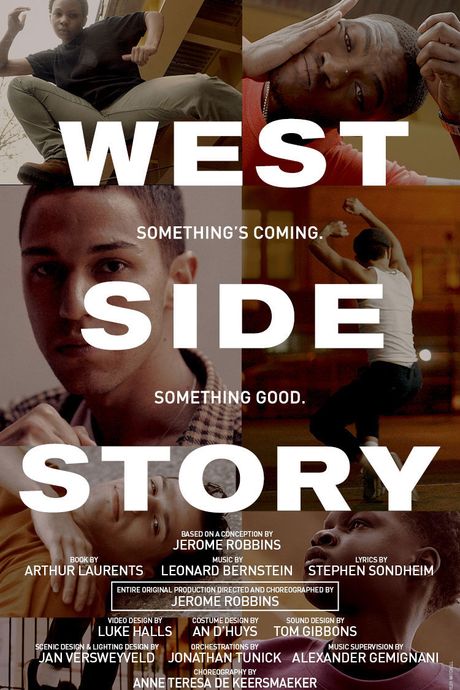
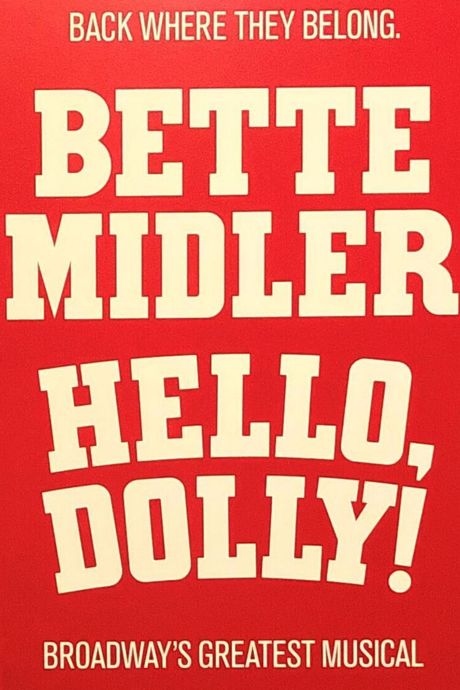
The first confirmed case of COVID-19 on Broadway was an usher at WhoÔÇÖs Afraid of Virginia Woolf?, one of RudinÔÇÖs shows. Rudin and several people who worked with him also got COVID, and a few of them briefly quarantined together at RudinÔÇÖs weekend home in East Hampton. He shuttered his Times Square offices on March 12, 2020, and closed them altogether that July. In August, he took over a conference room in DillerÔÇÖs IAC Building. He has spent much of the pandemic in East Hampton, where he shares a house on a corner lot in the village with his husband and their three golden retrievers. For a window on the world, he has his secret Instagram account, @edward_gordon_craig, named after the historical theatrical figure; it follows more than 4,800 other accounts.
Rudin has basically been the same person for the past half-century, but in the past year and a half something changed. Maybe it was a year without theater advertising and a stretch when unemployed Broadway workers had time to reconsider their industryÔÇÖs values ÔÇö and no morally queasy trade-offs were even available to them. Maybe it was the decline of RudinÔÇÖs Hollywood relevance. After the Hollywood Reporter expos├® was published, Rudin, who had crisis-PR experts to advise him, told the Times that he was ÔÇ£profoundly sorry.ÔÇØ He told the Washington Post that he was ÔÇ£taking steps I should have taken years ago to address this behavior.ÔÇØ
The articles prompted a reckoning throughout RudinÔÇÖs orbit. Some old-timers were surprised to learn how little Rudin had changed ÔÇö that he was no less malevolent in the 2020s than he had been as a young conqueror. (ÔÇ£He was yelling at me for peach Snapples and trying to get me to get out of the car in the Holland Tunnel 20 years ago,ÔÇØ one says. ÔÇ£I was like, ÔÇÿIsnÔÇÖt this guy bored?ÔÇÖ ÔÇØ) Others felt RudinÔÇÖs work ought to be considered tainted. ÔÇ£The thing IÔÇÖve been reflecting on is all of these dark transactions that happened by the thousands every day, with people in the office and people in the outside world,ÔÇØ one of his executives told me. ÔÇ£The movies are made out of those exchanges, and for a long time Scott got a pass by the fact that he does work of such quality. But the closer you look at it, if you see it at the molecular level, these things are made up of a kind of interpersonal violence.ÔÇØ
For a moment, it looked as if RudinÔÇÖs exposure might have consequences ÔÇö that creators might have to acknowledge that his abuse was one of the tools that went into making celebrated pieces of art. ÔÇ£IÔÇÖm fascinated about the A24 of it all,ÔÇØ a Hollywood executive who assisted Rudin decades ago told me in May, referring to the hip New YorkÔÇôbased studio that has released many of his recent films. ÔÇ£TheyÔÇÖre the wokest of the woke. The studio that brought you Minari and Moonlight has five movies in production with a fucking monster? WhatÔÇÖs your defense? You hired someone whoÔÇÖs a well-documented psychopath?ÔÇØ Stars faced the same questions. ÔÇ£Part of ScottÔÇÖs genius is he was hiding in plain sight,ÔÇØ an award-winning movie producer says. ÔÇ£No one can clutch their pearls. Hugh Jackman canÔÇÖt say, ÔÇÿI had no idea.ÔÇÖÔÇëÔÇØ A former Rudin assistant says, ÔÇ£All of Aaron SorkinÔÇÖs movies and plays are about crazy white men who abuse their power, so if he continues to work with him, he has no integrity.ÔÇØ
Once the initial heat faded, though, BroadwayÔÇÖs response felt tepid and tentative. Rudin was allowed to leave on his own terms, resigning from the Broadway League instead of being ejected. The only two Rudin collaborators to emphatically call him out have been Tavi Gevinson and Michael Chabon. He remains somewhere between unemployable and impossible to write off. Diller is said to have told people that Rudin thinks he can lie low and wait out the scandal but that this assessment may be unrealistically optimistic. If Rudin can make a comeback, the business mechanics of Broadway seem more favorable than those of the film industry. To get a movie funded, you need stars, and stars wilt under the glare of adverse Twitter. But itÔÇÖs not impossible to imagine Rudin, backed by Diller=Geffen money, putting together a small play by an older, loyal writer, with an older cast thatÔÇÖs less sensitive to political backlash, turning a profit, and easing his way back to Times Square.
What seems certain is that Rudin will need to convince people heÔÇÖs truly sorry and has changed. ÔÇ£If I was his publicist,ÔÇØ a Hollywood marketing executive with unfond memories of working with Rudin says, ÔÇ£IÔÇÖd say, ÔÇÿWhy donÔÇÖt you talk about what happened to you in your childhood that makes you act this way and beg for forgiveness?ÔÇÖ But I donÔÇÖt think he will. ThereÔÇÖs a sadness with him and Harvey. TheyÔÇÖre both brilliant men, but people who act in this way are walking around with unresolved trauma.ÔÇØ
Or maybe Rudin will take his own advice. ÔÇ£People end amazing careers angry and bitter and feeling overlooked because they could not get their head around the idea that it was no longer their time,ÔÇØ he told The Hollywood Reporter in 2010. ÔÇ£The smartest thing you can know is when itÔÇÖs over.ÔÇØ


